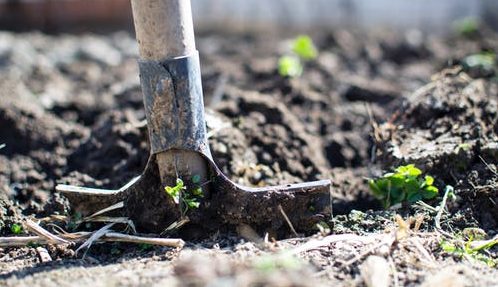Waste Not, Want Not
Waste not, want not was a mantra ever present in my childhood, passed down from grandparents that formed a way of life.
How often those words have come to mind as I read the newspaper and watch the daily news. Stories of farmers tilling under mature crops and dumping thousands of gallons of milk into ditches are forefront as our economy struggles.
We are told that the market for these goods has been lost as schools and restaurants are closed in the wake of the coronavirus. While there is some truth to that, the waste of food when so many are hungry and out of work hearkens back to failed crops and the dairy strikes of 1933 and 1934.
My grandparents were dairy farmers at that time in Scott County, a place where the soil was rich and their cows were healthy. Garden produce was canned or stored in a root cellar; milk was used by the family and sold to provide the primary income.
Losing the Farm
Like so many others during the Great Depression, my grandparents were affected by plummeting milk prices. With reduced profit margins, farmers struggled to break even, strikes were organized, and milk was poured to the ground. The frustration was easy enough to understand, but my grandparents could not abide by those actions. They knew of people in the nearby towns who were unemployed, who had children, and had little money for food. Rather than waste the milk, my grandparents risked the anger and retribution of protesters and gave it away for free. They felt it was the right thing to do in dire times.
Though my grandparents may have disagreed with the protesters, by all standards they certainly were not rich. Indeed, their own table for a family of 12 held meager meals of potatoes and whatever else they had from the cellar and farmyard. But they never worried about starvation. There was a sense of security because there was always something to serve for dinner, no matter how simple. Nothing was ever wasted.
In the end, like many others, my grandparents lost their farm to the local bank. Their generosity did not make the mortgage payment, but they never regretted their actions. On a gloomy day, they said good-bye to neighbors who came down the muddy road to see them for the last time before the auction of the farm began. My grandparents accepted the inevitable and looked ahead to their new life on more challenging soil in the north.
Frugality in the Kitchen
At the same time in the heart of Milwaukee, my husband’s grandparents were living with the same mantra: waste not, want not. Their small garden in the back yard had poor soil and produced little, but they nurtured it as best they could. His grandmother mastered economizing in the home. She took great pride in frugality especially in her kitchen, using every bit of food in some way. Water from cooked vegetables became soup broth enriched by celery and carrot ends. Apples, onions, potatoes, and carrots were purchased in bulk directly at the farmers’ market, stored in the root cellar, and used sparingly, though potatoes were a staple of every dinner. His grandfather was fortunate to have a job in a local factory, and they rented their upstairs to relatives for additional income. They made the most of whatever they had and helped others whenever they could. His grandmother’s thriftiness carried far beyond the Depression. Many years later she proudly announced that she had been able to use everything in her refrigerator with the last meal she prepared before she moved from her home. There was never a feeling of want or a lack of gratitude.
Turning Setbacks into Opportunity
Recent statistics tell us that unemployment during COVID-19 has exceeded that of the Great Depression, and food lines are growing. Though there are angry agitators carrying guns and signs that protest safe health practices, there also are people like our grandparents who recognize a basic need and act with charity. The images of wasteful dumping, plowing fresh vegetables back into the ground, and livestock killing are being replaced with helpful actions. Rather than waste milk and vegetables earmarked for schools and restaurants, various groups have reached out to farmers, helped to transport and package that food, and distributed it. Lines of cars waiting for free gallons of milk have stretched for miles. Boxes of free food stand at the ready.
In the Twin Cities, others are also turning setbacks into opportunity through grateful thinking. Rather than wasting time being disgruntled about delays in their careers, many medical students have turned canceled clinical rotations into valuable time providing free daycare for front-line workers and are serving on phone teams that track the spread of the virus.
All of us are challenged to make the most of this time in history. When we live with frugality and practice charity great or small, we see more clearly how rich we are. Our sense of gratitude expands and we want not.

Learn more about core Benedictine values.





